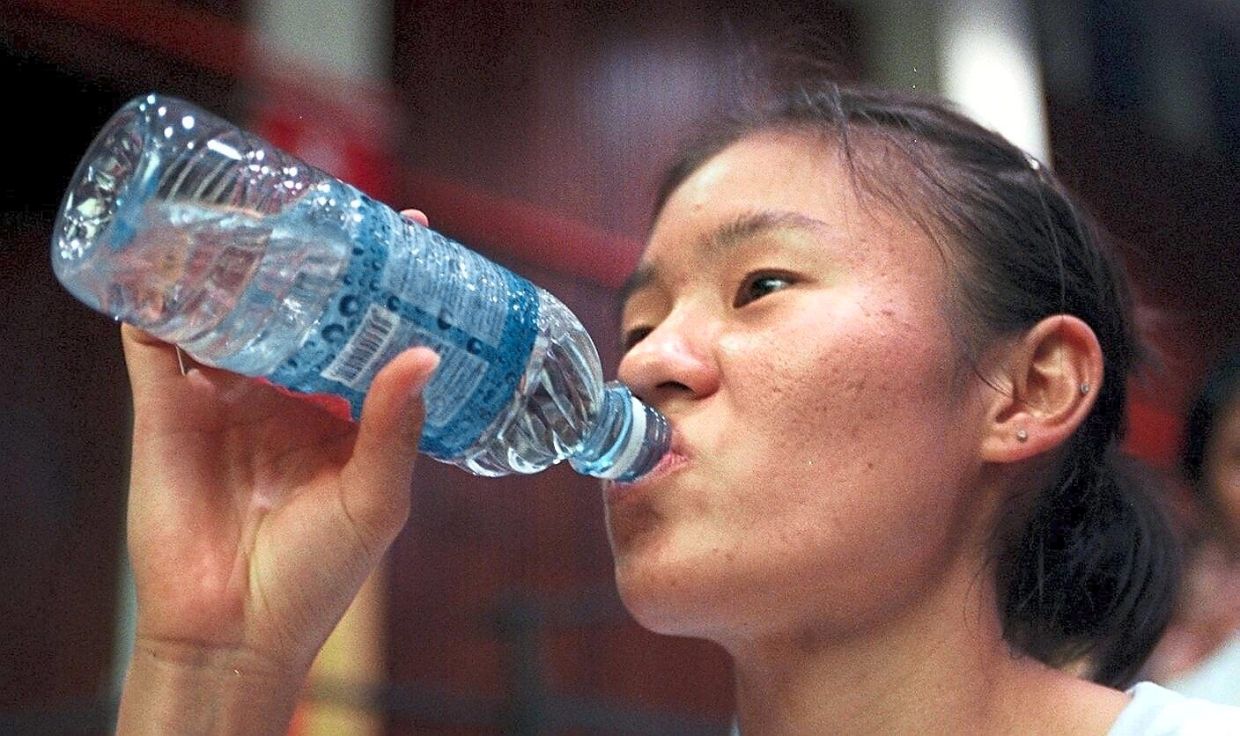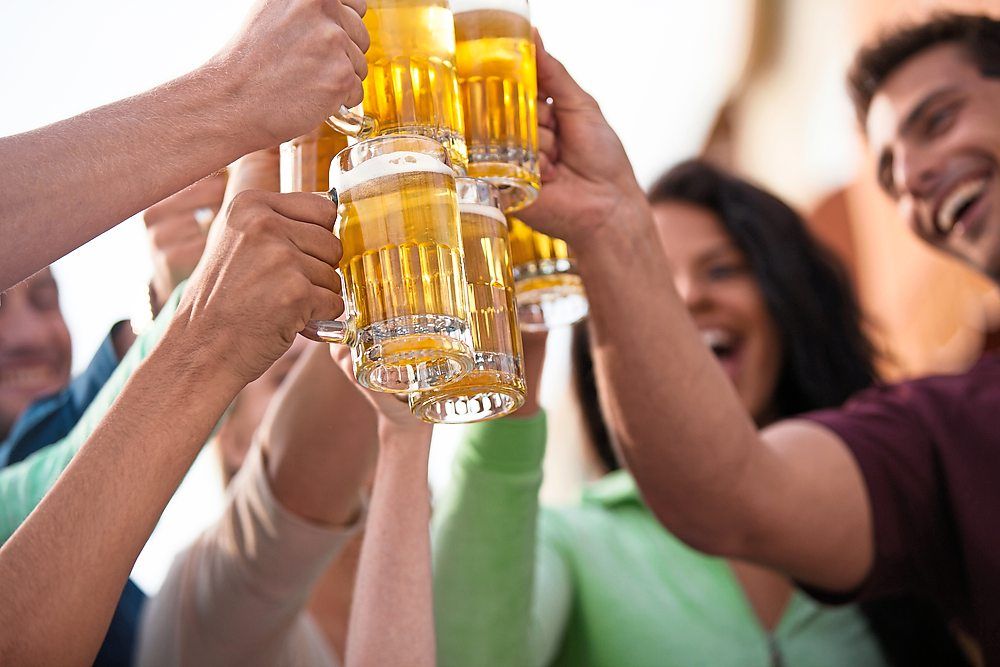After a good sweaty workout, we all long for a nice cold drink to quench our thirst.
Water is always the preferred choice, but some people opt for sports drinks to replace lost electrolytes.
No matter what you drink, hydration is key to exercise recovery.
However, it is equally important to drink before and during exercise, not just when you feel thirsty after exercise.
And guzzling is not the right way to stay hydrated. Instead, you should keep drinking liquids throughout your workout.
See how endurance racers refuel. Cyclists carry a cycling hydration pack that can hold more water in their cart than a standard size water bottle.
This makes carrying and drinking water more convenient because you don’t have to stop or slow down to take a sip.
Drink from a pouch or tube (like a straw) connected to a water tank.
For marathoners, water stations will be set up every 5km during the race.
Imagine that you are dehydrated and that you are being given intravenous fluids. Doctors give small amounts of fluid rather than pumping out a large amount all at once.
Not drinking enough water during the day can make you feel dizzy, confused, or even give you a headache while exercising.
No matter how many liters of fluid you drink at that moment, your symptoms will not immediately improve.
The best thing to do is go home, rehydrate and rest.
The easiest way to check your hydration status is to observe the color of your urine. If your urine is pale yellow and runs well, you are well hydrated.
If your urine is dark yellow and you don’t pee often, you may be dehydrated.
However, keep in mind that dark yellow pee can also be caused by taking certain vitamins, and regular pee is fine.
plan well
Especially during long workouts, you need to plan how you stay hydrated.
The average person loses up to 0.5 liters of sweat every 30 minutes, depending on the intensity of exercise. You need to replenish this water.
When I (previously) went hiking, I didn’t have a water bottle with me, thinking that my two-hour workout would go by in the blink of an eye and I could go to the store and get some fresh coconut water. did.
On top of that, I wanted a free arm, so I didn’t like the idea of carrying a water bottle in my hand or in my backpack.
One day, while we were both hiking a nearby trail, my buddy started passing out.
She usually hikes on an empty stomach, but the hot, humid day, combined with the fact that her blood sugar probably dropped, made her feel emaciated.
There were so many people in the forest that I couldn’t move fast enough to get out.
She emptied her mini water bottle, so she couldn’t offer me anything.
Seeing us on the ground, another hiker immediately came to our aid and gave her chocolate and water.
One person put cold water on his head to cool down and advised him to always carry a large water bottle from now on.
So not only do you need water for hydration, but it’s also convenient to splash water on to cool you down.
After a short rest, I was able to escape safely.
After that episode, I never leave the house without a water bottle, salty snacks, nut bars, a minyak angin, an umbrella, and most recently, hand sanitizer or alcohol wipes.
Most parks in the West have fountains, but none here.
Even if you do, you may see the ugly side of Malaysians, with fountains being destroyed, spitting out, or improperly maintained by local councils.
Effects of caffeine
Post-workout coffee is hotly debated in the world of fitness and science, but it seems that coffee may help the body recover.
Caffeine helps keep glycogen levels elevated after exercise.
When your glycogen levels are depleted, you will feel muscle soreness and fatigue from exercise.
2021 studies published in journals nutrients They found that coffee with sufficient carbohydrates increased muscle glycogen resynthesis during the 4-hour recovery period after strenuous cycling exercise.
Some people swear that drinking iced coffee after a workout makes you feel energized.
However, immediately after a workout, you should drink water first before drinking coffee.
As long as you prioritize hydration, such as water and electrolyte drinks, and use coffee as an add-on, coffee can be part of an effective post-workout recovery strategy.
If you really need a pre-workout coffee, drink it at least an hour before your workout.
But again, all individuals are different.
For example, drinking tea an hour before your cardio workout can give you a ton of energy.
But doing yoga twist poses makes me nauseous, so if you have a yoga class, you should drink tea at least 1.5 hours before.
As for whether coffee causes dehydration, studies have shown it does not.
A 2019 study published in International Journal of Sport Nutrition and Exercise Metabolismresearchers divided healthy men into three groups and provided each with four different concentrations of beverages containing either sucrose (rich in sugar), sodium, or caffeine.
The urine volume of the men was then collected for the next 4 hours.
They found that drinks high in sugar and sodium produced less urine than drinks low in sugar and sodium.
However, when we examined drinks with different amounts of caffeine, there was no change in urine output in men.
Therefore, the researchers concluded that up to 400mg of caffeine (about 4 cups) did not affect the hydrating potential of the beverage, or its ability to retain water.
what about alcohol?
Hard liquor is strictly prohibited, but beer is the norm for many after a hike in the sun.
You might think so, but there doesn’t seem to be anything wrong with having a light beer to aid post-workout recovery.
Beer is made from natural ingredients such as malted grains (most often barley), hops, yeast and water.
Alcohol content varies from less than 1% to over 15%, but a typical beer contains about 5% alcohol by volume.
Based on research on beer consumption related to endurance sports, beer with an alcohol content of less than 4% is effective for post-exercise hydration.
Adding sodium to low-alcohol beers improves their hydrating properties, but this may not be palatable to some taste buds.
Of course, you shouldn’t drink alcohol immediately before exercising. Alcohol slows down all systems in the body.
You may not be able to adjust from right to left and you may get injured.
Bottom line, if you’re not a serious athlete, go with the flow and keep drinking plenty of fluids to stay hydrated.
Every little bite counts.
Revati Murgappan is a certified fitness trainer who fights gravity and continues to dance to express herself artistically and nourish her soul. For more information, please email starhealth@thestar.com.my. The information contained in this column is for general educational purposes only.do not have star In addition, the author does not warrant the accuracy, completeness, functionality, usefulness, or any other warranty with respect to such information. star The author also disclaims all liability for loss, property damage, or personal injury suffered directly or indirectly from reliance on such information.
.


